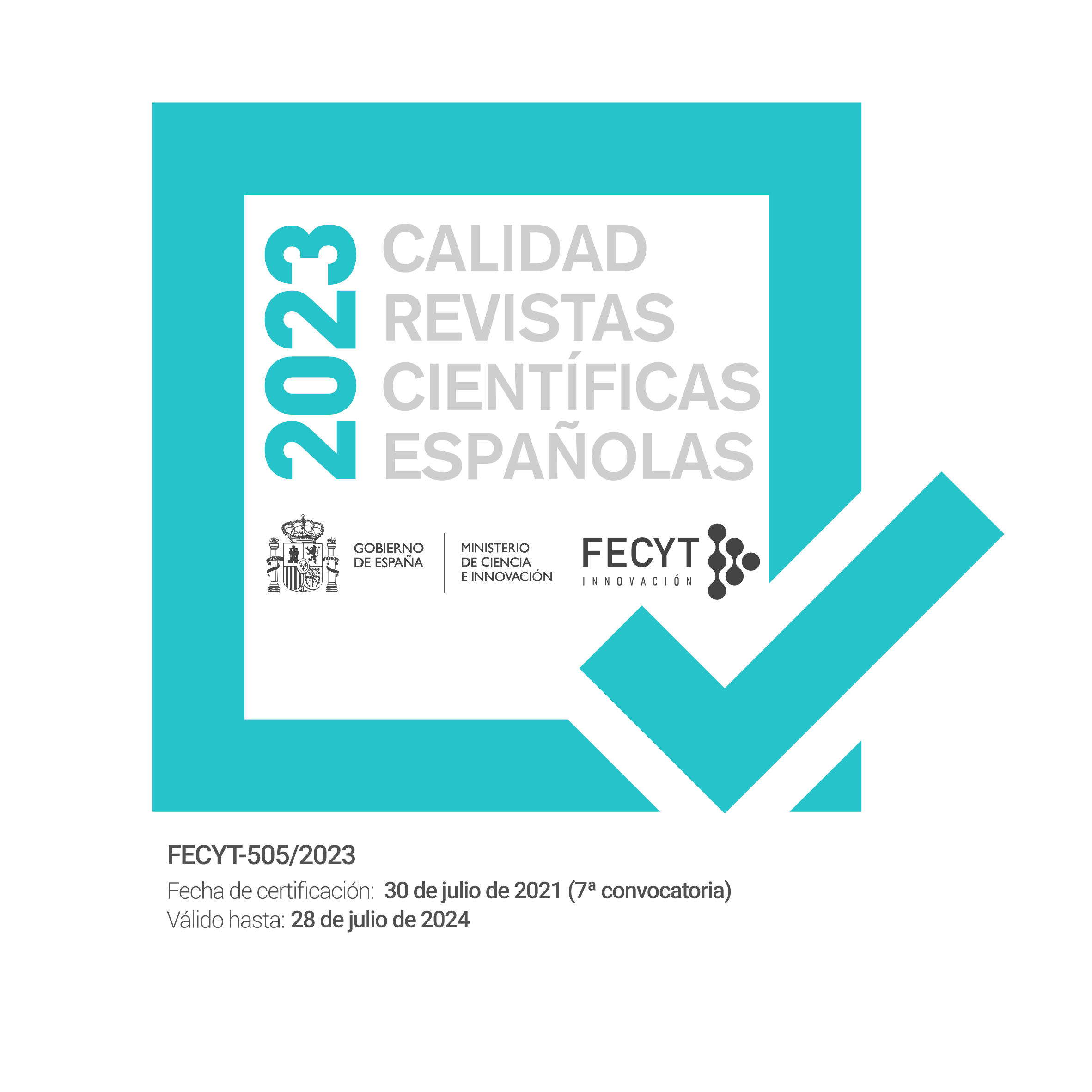Zamiatin y la ética kantiana: libertad y felicidad en Nosotros
Resumen
Zamyatin and Kantian Ethics: Freedom and Happiness in We
Resumen: Nosotros cumple un siglo y, a diferencia de otras distopías, no existen muchos estudios en español sobre ella. En este trabajo se analiza la perspectiva de la ética retratada en la novela y en especial el conflicto entre libertad y felicidad como una dicotomía en la cual se privilegia a la felicidad sobre la libertad. Tras analizar las referencias a Kant en la obra, se concluye que es verosímil considerar que la postura del escritor ruso se asemeja a la de la ética kantiana. Finalmente, se sostiene que la dicotomía entre libertad y felicidad es una falsa dicotomía.
Abstract: Since a century ago when it has been written, We has not been the focus of the Spanish critical attention, in contradistinction to other dystopias This work analyzes the perspective on ethics portrayed in the novel and especially the conflict between freedom and happiness as a dichotomy in which happiness is privileged over freedom. After analyzing the references to Kant in the work, it is concluded that it is plausible to consider that the position of the Russian writer is similar to that of Kantian ethics. Finally, it is argued that the dichotomy between freedom and happiness is a false dichotomy.
Palabras clave: Distopía, Pensamiento utópico, Crítica Social, Literatura rusa, Kant.
Keywords: Dystopia, Utopian Thought, Social Critique, Russian Literature, Kant.
Texto completo:
PDFReferencias
Adorno, T. (1962) “Aldous Huxley y la utopía” en Prismas: crítica de la cultura y de la sociedad, Barcelona: Ariel, pp. 99-125.
Bugajska, A. (2019) Engineering Youth: The Evantropian Project in Young Adult Dystopias. Cracovia: Ignatianum.
Claeys, G. (2017) Dystopia: A Natural History. Oxford: Oxford University Press.
Curtis, J. A. E. (2013) The Englishman from Lebedian’: A Life of Evgeny Zamiatin. Boston: Academic Studies Press.
De Brigard, F. (2010) 'If you like it, does it matter if it's real?', Philosophical Psychology, 23: 1, 43-57. DOI: 10.1080/09515080903532290.
Dostoiewski, F. (1930). Los hermanos Karamazov (trad. A. Nadal). Madrid: Airon.
Forster, E. (2016) La máquina se para (trad. J. Rodríguez Hidalgo). Madrid: Ediciones del Salmón.
GonzálezLagier, D. (2017) A la sombra de Hume: un balance crítico del intento de la neuroética de fundamentar la moral. Madrid: Marcial Pons.
Huxley, A. (1999) Un mundo feliz (trad. R. Hernández). Madrid: Unidad.
Jerome, J. K. (2018 [1891]). La nueva utopía (trad. J. González-Torres Domingo). Madrid: Unión Editorial.
Jeu, B. (1981), “La filosofía rusa”. En Belaval, I. (ed.) Las filosofías nacionales: siglos XIX y XX. Madrid: Siglo XXI.
Kant, I. (2013) ¿Qué es la Ilustración? Y otros escritos de ética, política y filosofía de la historia (ed. R. R. Aramayo). Madrid: Alianza.
Kant, I. (1998) Sobre la paz perpetua (trad. J. Abellán). Madrid: Tecnos.
Kant, I. (1993) Crítica de la razón pura (trad. P. Ribas). Madrid: Alfaguara.
Kern, G., editor, (1988), Zamyatin’s We: A Collection of Critical Essays. Ann Arbor: Ardis.
KiselovaSavrasova, V. y Marín Hernández, D. (2015), “La traducción y recepción en España de Nosotros, de Evgueni Ivánovich Zamiatin”, Sendebar (26):167-193.
Kryshtop, L. (2016), “The reception of Kant in Russia”, Con-TextosKantianos: International Journal of Philosophy, 4: 56-69. Doi: 10.5281/zenodo.163989.
Málishev, M. (1997). “Dostoievski y Kant: antinomia de la libertad y la felicidad”. Ciencia ergo sum 4(3): 333-340.
Maniscalco Basile, G. (2015), “The Algebra of Happiness: Yevgeny Zamyatin’s We”, Quaestio Rossica, (4): 19-39. https://doi.org/10.15826/qr.2015.4.124
Misseri, L. E. (2016), 'Evantropia and Dysantropia: A Possible New Stage in the History of Utopias', Olkusz, K, M. Kłosiński y K. M. Maj (2016), More After More: Essays Commemorating the Five-Hundredth Anniversary of Thomas More's Utopia. Cracovia: FactaFicta,pp. 26-42.
Moylan, T. (2000) Scraps of the Untainted Sky: Science Fiction, Utopia, Dystopia. Boulder: Westview Press.
Nozick, R. (1999), Anarchy, State, and Utopia. Oxford y Cambridge (US): Blackwell.
Orwell, G. (1946), “Review of Zamyatin’s We”, periódicoTribune. Londres. Disponible en: https://orwell.ru/library/reviews/zamyatin/english/e_zamy.
Orwell, G. (2003), 1984 (trad. R. Vázquez Mora). Barcelona: Destino.
Parrinder, P. (1973). “Imagining the Future: Zamyatin and Wells”. ScienceFictionStudies, Vol. 1, No. 1, pp. 17-26.
Platón (2004). República (trad. A. Camarero). Buenos Aires: Eudeba.
Savulescu, J. y Persson, I. (2012), “Moral Enhancement, Freedom and the God Machine”, The Monist, 95(3): 399-421.
Shklovsky, V. (1988), “Evgeny Zamyatin’s Ceiling”. En: Kern, G., editor, Zamyatin’s We: A Collection of Critical Essays. Ann Arbor: Ardis, pp. 49-50.
Trousson, R. (1995). Historia de la literatura utópica: viajes a países inexistentes (trad. C. Manzano). Barcelona: Península.
Voronsky, A. (1988), “Evgeny Zamyatin”. En: Kern, G., editor, Zamyatin’s We: A Collection of Critical Essays. Ann Arbor: Ardis, pp. 25-48.
Wegner, P. E. (1993). “On Zamyatin's We: A Critical Map of Utopia's 'Possible Worlds'”, Utopian Studies, Vol. 4, No. 2, pp. 94-116.
Weijers, D. (2014),“Nozick's experience machine is dead, long live the experience machine!”, Philosophical Psychology, 27, 4, pp. 513-535- DOI: 10.1080/09515089.2012.757889
Wells, H. G. (2000 [1905]). Una utopía moderna (trad. J. Sánchez Rottner). México: Océano.
Wittgenstein, L. (1990), Conferencia sobre ética. Barcelona: Paidós.
Zamiatin, E. (1968), La pulga(trad. A. Fierro).En:AA. VV., Teatro cómico soviético, Madrid, Aguilar, pp. 58-115.
Zamiatin, E. (2008), Nosotros (trad. S. Hernández-Ranera). Madrid: Akal.
Zamyatin, Y. (1970). A Soviet Heretic: Essays by Yevgeny Zamyatin (trad. M. Ginsburg). Chicago y Londres: The University of Chicago Press.
Замятин, Е. И. [Zamiatin, E. I.] (2003a), Собраниесочинений 1: уездное [Obras completas 1: Cuento de provincias/Úyezd], Moscú, Русскаякнига.
Замятин, Е. И. [Zamiatin, E. I.] (2003b), Собраниесочинений 2: Русь [Obras completas 2: Rus’], Moscú, Русскаякнига.
Замятин, Е. И. [Zamiatin, E. I.] (2004), Собраниесочинений 3: Лица [Obras completas 3: Personas], Moscú, Русскаякнига.
Замятин, Е. И.[Zamiatin, E. I.] (2010), Собраниесочинений 4: Беседыеретика [Obras completas 4: Conversaciones de un hereje], Moscú, Русскаякнига.
Замятин, Е. И. [Zamiatin, E. I.](2011), Собраниесочинений 5: ТрудноеМастерство [Obras completas 5: Difícil Maestría], Moscú, Русскаякнига.
Enlaces refback
- No hay ningún enlace refback.


Esta obra está bajo una licencia de Creative Commons Reconocimiento-NoComercial-SinObraDerivada 4.0 Internacional.
